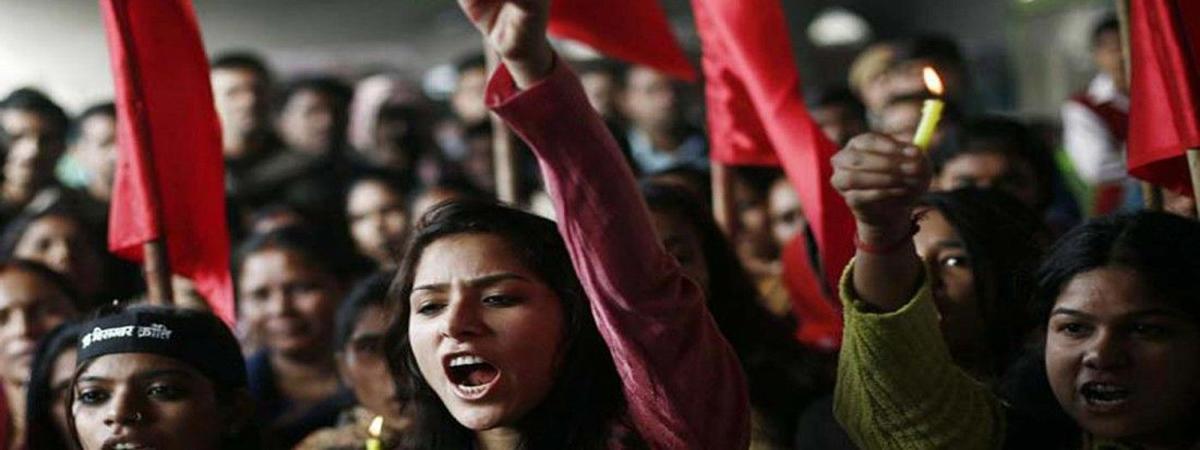Re-examining Universal Declaration of Human Rights in the #MeToo Era

Human rights are the rights inherent to all human beings, notwithstanding any kind of partisanship without discrimination, everybody is equally ratified to human rights
Human rights are the rights inherent to all human beings, notwithstanding any kind of partisanship — without discrimination, everybody is equally ratified to human rights. The Universal Declaration of Human Rights (UDHR), comprising of 30 articles, drawing the basic rights and freedoms is the founding document for the contemporary human rights movement. On December 10, 1948, UDHR was adopted by the UN General Assembly. On this date, Human Rights Day is observed every year.
Anniversaries are meant to reveal on the past and to look forward. This year, Human Rights Day marks the 70th anniversary of the UDHR, which emphases attention on the origins and position of one of the most important documents for the human lives around the world.
The principles enshrined in the UDHR, definitely, are as relevant today as they were ever before. As a matter of fact, rights and duties go hand in hand. So, there is a need to stand up for one’s own rights and those of others. For this, the action can be taken is — to endorse the rights that protect us all and thereby uphold the kinship of people around the world.
Going back in period, India took an active part in the drafting of the UDHR. The Indian delegation made significant contributions in the drafting of the declaration — particularly underlining the need for gender equality. Nonetheless, India is one of the few countries where gender equality has been a substantial social issue since times immemorial.
As India faces weighing up and rolling of #MeToo movement, often there has been the voice questioning of the pervasiveness of human rights in India. Eleanor Roosevelt, who chaired the UDHR drafting committee said, “Where, after all, do universal human rights begin? In small places, close to home — so close and so small that they cannot be seen on any maps of the world.” This statement holds good in the locale of #MeToo movement — an inferno outset in India by Mahima Kukreja’s twitter post dated October 4, 2018.
The #MeToo movement can be considered nothing beneath the state of affairs of crime against women, which semantically means direct or indirect; physical or mental cruelty to women. To a large extent, the alarming rate in the crimes against women can be attributed to the failure of the effective execution of human rights.
Going by the latest available statistics, the crimes committed against women in India have increased by 30.16 percent between 2011 and 2015. In the present-day setting, just like the nature of human rights, which do not endure any kind of discrimination, the issue of crimes against women also has transcended geography, class, culture, age, race, and religion. This issue needs to be addressed urgently!
For a long time, only civil and political rights were focused upon. Nevertheless, there are various other dimensions of human rights. The situation, now, seems to be changed as the economic, social and cultural rights are also given due importance. Movements such as #MeToo have made it obligatory to revisit the UDHR. As such, human rights in the broader sense have resulted in new laws, charters, and covenants.
Perceptibly, circumstances like #MeToo or any other forms of crime against women are sheer resultants of lack of human rights education. One of the ways by which this intimidation could be talked is by bringing human rights education at all levels. Through the learning of human rights as a way of life, fundamental change can be brought about to eliminate all sorts of discrimination.
Human rights education cannot be limited to the mere introduction of the concept. For the reason that human rights education serves as a means of understanding and embracing principles of human equality, dignity, and commitment to respect and protect the rights of all, there is fairly a need to go deep into the subject.
Also, there is a need to make far more cognisant effort through human rights education to alter the world, considering the recent changes in the global scenario, including situations like #MeToo. It is imperative to make the young children appreciate the value of the UDHR, for it is the collection of the power of ideas to change the world.
Conceivably, the most reverberating and lovely words of any international agreement are of UDHR — all human beings are born free and equal in dignity and rights. The UDHR, to a great extent, has slurred the despotism, discrimination, and contempt for humans. In these 70 years, the commitments made by all nations in the Universal Declaration of Human Rights are in themselves an enormous achievement.
(The writer is an Air veteran & a mass communicator — author of more than 10 mass media books. He can be contacted at [email protected])










